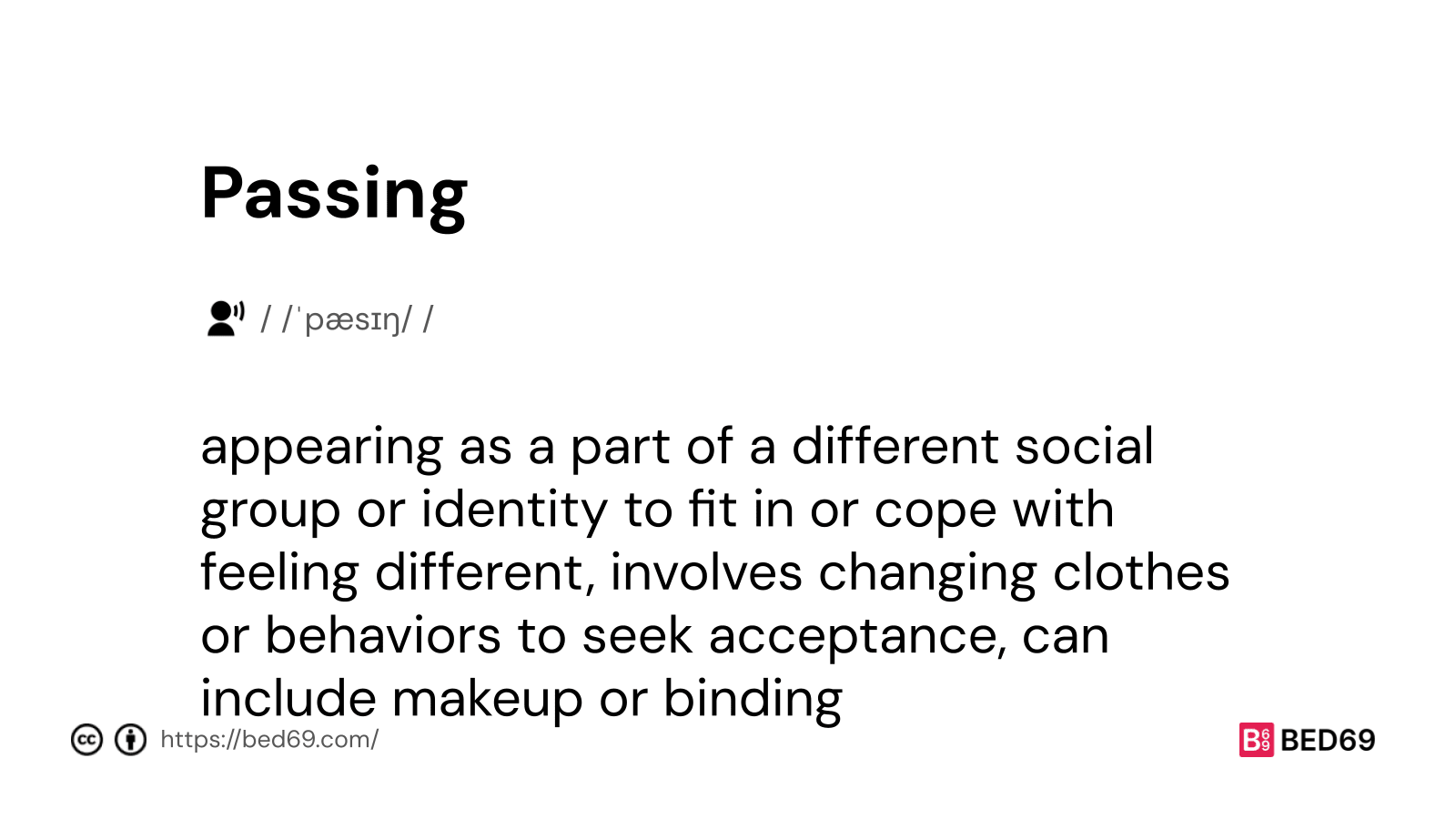What is Passing?
Passing involves appearing as a part of a different social group or identity. It often aims to fit in or cope with feeling different. People may change clothes or behaviors to pass, seeking acceptance. Passing as a different gender or race can involve makeup or binding.
Passing pronunciation: / ˈpæsɪŋ /

How can Passing impact identity
Passing as a higher social class is more accepted than passing as a different race or gender. Those attempting to pass as another gender or race might face discrimination if discovered. The act of passing can lead to internal conflict as individuals navigate societal norms and personal identity.
It involves changing aspects of oneself to gain acceptance or cope with feeling out of place. Whether altering behaviors or appearances, passing can affect how individuals perceive themselves and how others perceive them in return.
The significance of Passing in modern society
The significance of Passing in modern society is intricate. It reflects the complexities individuals face in seeking acceptance and managing their differences. While passing as a higher social class is often seen as acceptable, passing as a different race or gender can trigger societal scrutiny.
Those attempting to pass as another gender or race may encounter discrimination if their true identity is revealed. This highlights the underlying biases and challenges people confront when navigating societal norms and expectations through passing. In essence, passing illuminates the struggle for inclusion and the lengths individuals go to cope with their sense of otherness in contemporary society.
Explore other interesting terms:
